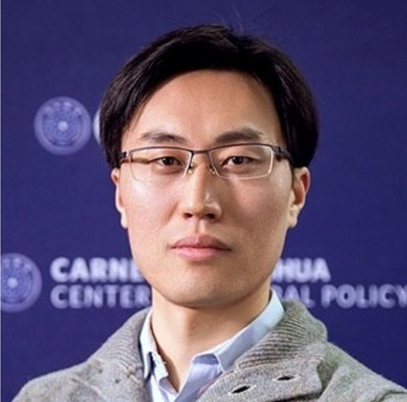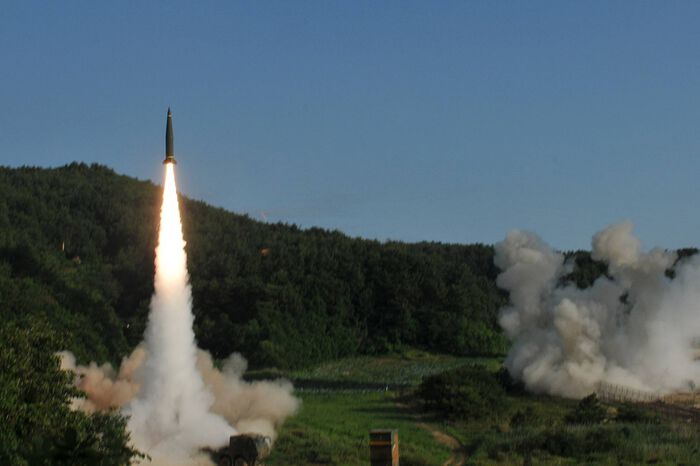Online-seminars
Previous
Jim Stokes, NATO Director of Nuclear Policy will discuss the role of nuclear deterrence and recent changes and challenges to the NATO nuclear mission.
Dr. Tong ZHAO will present his Carnegie report titled "Deciphering the Evolution of China’s Nuclear Strategy: Questioning the Assumption of Policy Coherence”.
Sitara Noor will present her paper titled "Strategic Stability in South Asia: The Evolving Challenges and Potential Opportunities for India and Pakistan".
Prof. Michal Onderco will present his current article project entitled "Public Opinion and Nuclear Weapons in Host Nations".
Henrietta Wilson will present her forthcoming edited volume titled "Open Source Investigations in the Age of Google".
Professor Matthew Jones will present his paper titled "Henry Kissinger and US policy over nuclear assistance to the UK and France, 1971-74".
Join us for an online book presentation by Dr Robert Jacobs (Hiroshima Peace Institute, University of Hiroshima) who will present his book "Nuclear Bodies: The Global Hibakusha" (Yale University Press, 2022).
Dr Robert Bell will present his PhD dissertation titled "NATO Nuclear Burden-Sharing Post-Crimea: What Constitutes 'Free-Riding'?"
Dr. Rhys Crilley will present his current article project entitled "Atomic Aversion in the Digital Age: Using Social Media Data to Understand Public Opinion About Nuclear Weapons".
Join us for an in-person panel discussion on "The Myth of the Nuclear Revolution: Power Politics in the Atomic Age" (Cornell University Press, 2020). Prof. Keir Lieber will present his co-authored book (with Prof. Daryl Press), followed by remarks from ONP affiliate Dr. Kristin Ven Bruusgaard (Director, Norwegian Intelligence School) and ONP Post-Doctoral Fellows Dr. James Cameron and Dr. Do Young Lee. The event will be chaired by ONP Director Prof. Målfrid Braut-Hegghammer.
Join us for an in-person book presentation in Oslo by Dr. Lauren Sukin who will present her book project, entitled "How Credible Security Guarantees Backfire".
Dr. Jacklyn Majnemer will present her current article project entitled "Patterns of Foreign Nuclear Deployment: Understanding Host State Refusal".
The Oslo Nuclear Project has the pleasure of inviting you to an online seminar with Jessica Cox (Director, Nuclear Policy Directorate at NATO HQ) on “The Future of NATO's Nuclear Deterrence” on 3 June (14:00-15:15).
We will discuss Aaron Bateman's new Journal of Strategic Studies article, "Mutually assured surveillance at risk: Anti-satellite weapons and cold war arms control."
In this Oslo Nuclear Project seminar, Prof. Carlo Patti will present his new book Brazil in the Global Nuclear Order (JHU Press 2021), the first comprehensive and definitive history of Brazil's decision to give up the nuclear weapon option.
In this Oslo Nuclear Project seminar, Dr. Elisabeth Roehrlich (University of Vienna) will present her new book Inspectors for Peace (JHU Press 2022), which unravels the IAEA’s paradoxical mission of sharing nuclear knowledge and technology while seeking to deter nuclear weapon programs.
In this online seminar, we will discuss Jaganath Sankaran and Steve Fetter's paper "Defending the United States: Revisiting National Missile Defense against North Korea"
In this online seminar, we will discuss Even Hellan Larsen's paper "Deliberate nuclear first use in an era of asymmetry: a game theoretical approach"
In this online seminar, we will discuss Erik Lin-Greenbergs paper "Cheap Tweets: Crisis Signaling in the Age of Twitter".
In this online seminar, we will discuss Caitlin Talmadge's draft paper with Vipin Narang and Lisa Michelini, “When Actions Speak Louder than Words: Adversary Perceptions of Nuclear No First Use Pledges.”
Technological shifts are eroding the line between nuclear and conventional weapons. We discuss the implications for strategic stability, and examine Russia’s and South Korea’s deterrence strategies.
We will discuss Emma Rosengren's chapter, "Armed Neutrality in Dire Straits. A feminist analysis of the 1981 Swedish submarine crisis."
We will discuss Aaron Bateman's article, "Keeping the Technological Edge: Britain and the Strategic Defense Initiative."
We will discuss Philipp Lutscher's article, "Digital Retaliation? Denial-of-Service Attacks After Sanction Events".
We will discuss Oliver Barton's paper "'No Special Privileges'? British Nuclear Forces, Transatlantic Relations, and the INF Negotiations."
















